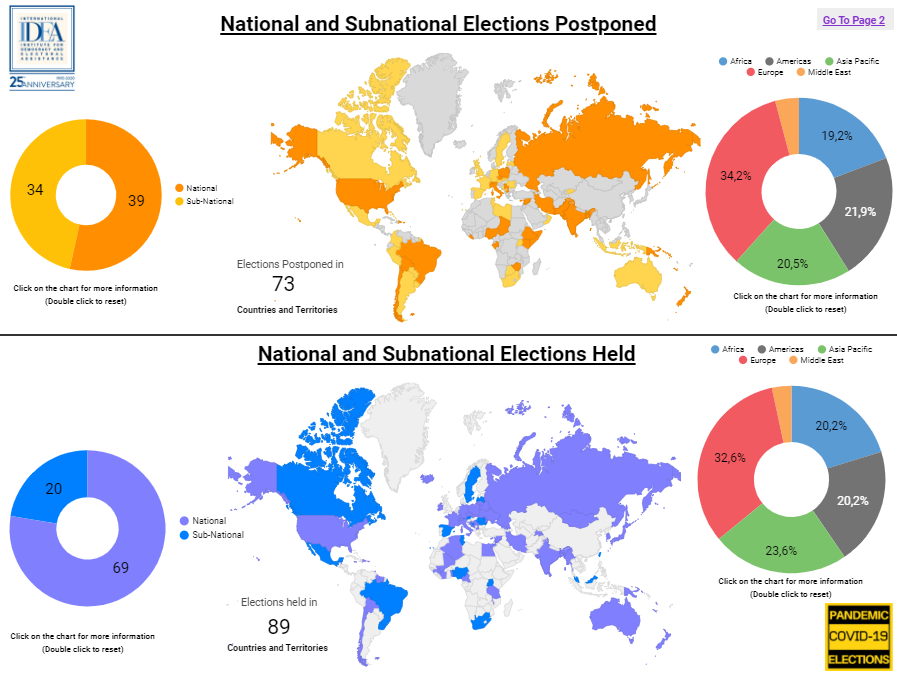
The Covid-19 pandemic has required a balancing act between protecting public health and preserving public trust in democracy. These difficult choices had to be made and implemented at an unprecedented pace, sometimes under fierce scrutiny. Understanding how others were handling similar situations became an important touchstone.
Electoral authorities urgently needed examples of what alternative or adapted voting arrangements were feasible, and under what conditions; they needed models of how others were handling unprecedented legislative and political consensus-building and public communication challenges. International IDEA needed to take action quickly.
Within the first week of the pandemic, International IDEA quickly developed a multilanguage, multimedia page tracking Covid-19 elections that has attracted over 70,000 page views from 168 countries.
While the intended audience was electoral authorities, the users included over 100 international and national media outlets. CNN, The Economist, BBC, Foreign Affairs, and Le Figaro are some of the outlets that cited International IDEA’s data and analysis. Technical papers and over 40 pieces of analysis in the form of articles and other written interventions were quickly produced. International IDEA experts made themselves available on webinars, domestic interagency consultations and legislative hearings—including lectures for Latin American, European and Asian electoral management body audiences, testimony to the US Congress, and participation in interagency mechanisms in Norway and the United Kingdom.
The data continue to inform the Global Monitor, which tracks the overall impact of Covid-19 on the state of democracy and human rights worldwide. Regional and global organizations such as The Commonwealth and the African Union have used International IDEA’s research material to develop guiding documents for their constituencies.

